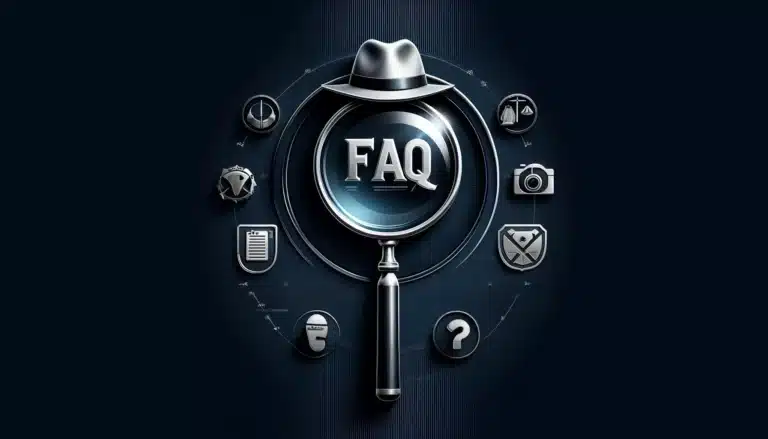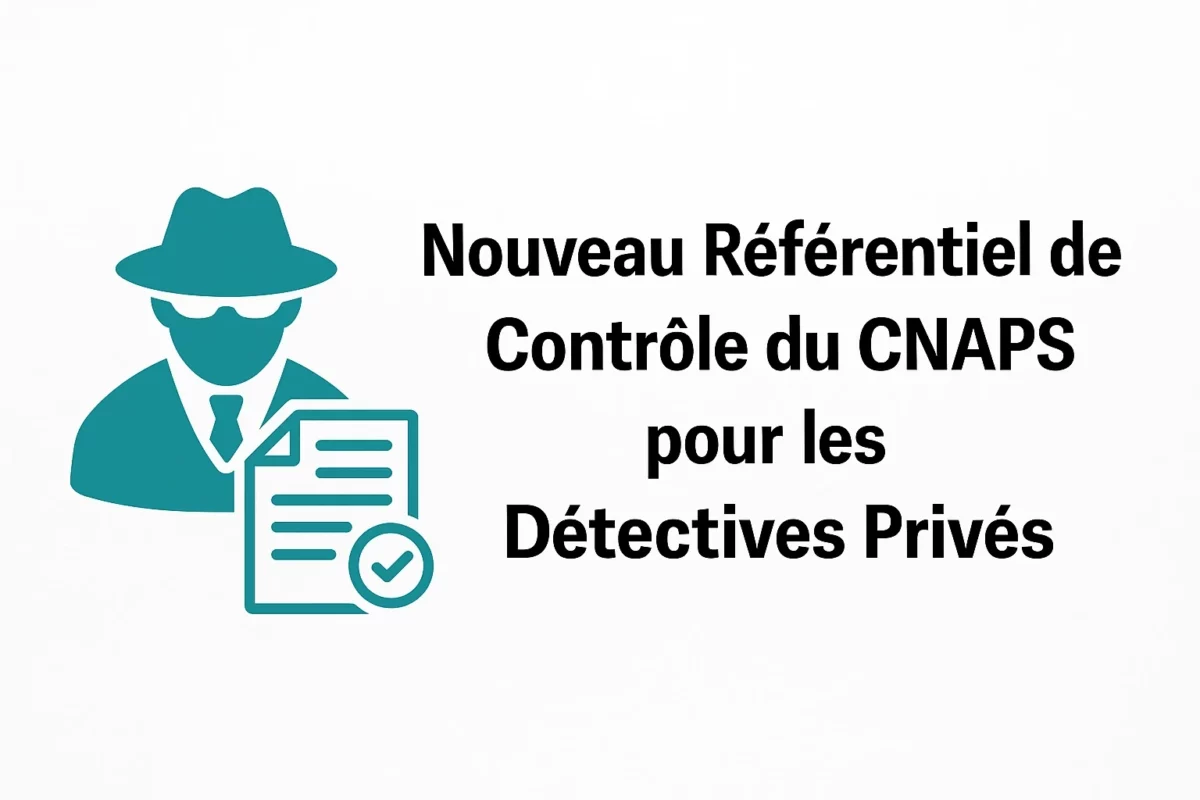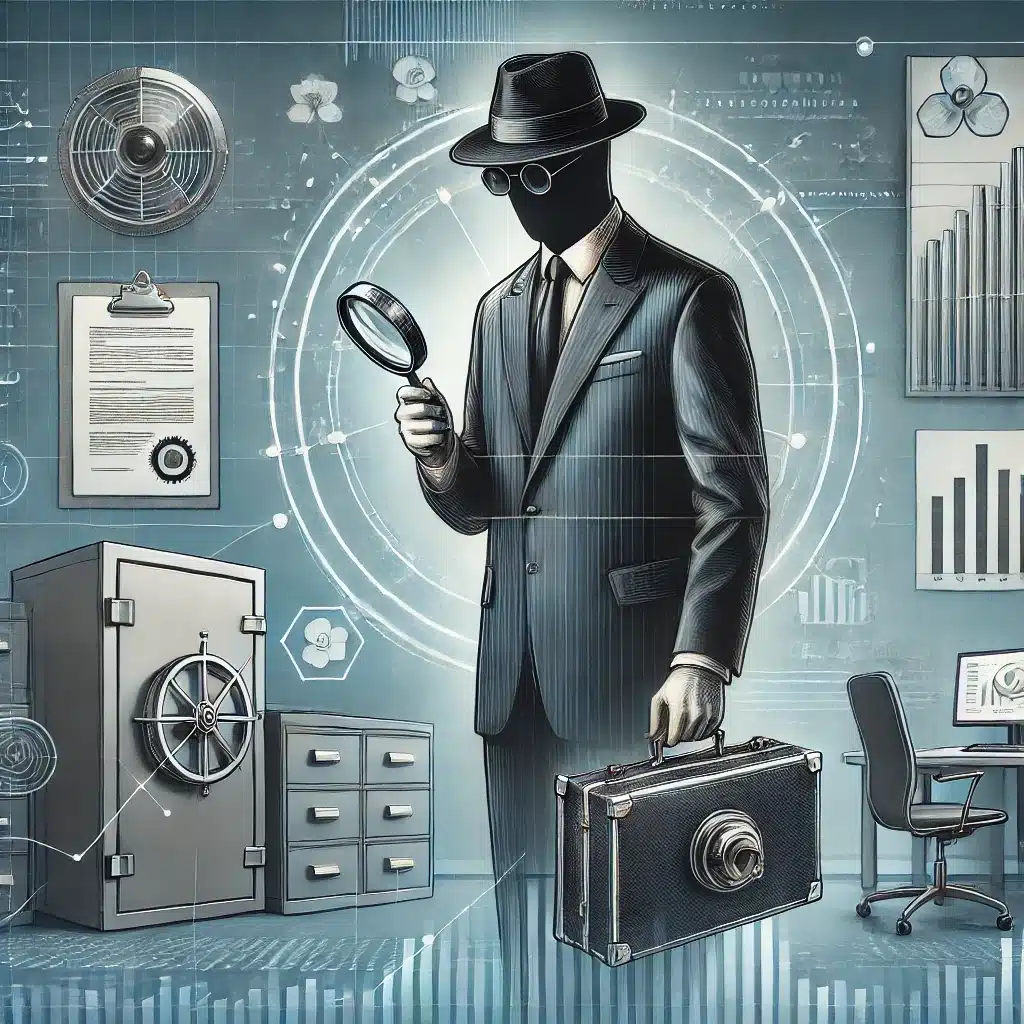
Welcome to the INVENY private detective agency frequently asked questions (FAQ). We are aware that the private detective profession can raise many questions, and that our services, although valuable, are often little known. This section is designed to answer the most frequently asked questions.
Explore this FAQ to find out how we can assist you, our service rates, legal terms and conditions, and much more. Our aim is to offer you the best possible user experience, while providing you with essential information about our services and expertise.
Table of contents
Frequently asked questions
Is it legal to hire a private detective in France?
Yes, the profession of private detective is perfectly legal in France, under the terms of Article L-621-1 of the French Internal Security Code. This stipulates that private detectives are empowered to gather evidence to defend their clients' interests. However, their intervention must respect legality, morality and legitimacy. The detective must not reveal his status or the purpose of his mission, and must not accept any illegal assignment, such as the installation of geolocation beacons or microphones.
Why call in a private detective?
Calling in a private detective can help you obtain crucial evidence to defend your rights in a variety of civil and criminal cases. In civil cases, the onus is on the parties to provide the necessary evidence. A private investigator, thanks to his or her training and accreditation, can provide strategic information and legal evidence, helping clients to make informed decisions or defend themselves effectively.
Is a detective's report admissible in court?
Yes, private detective reports are admissible in court, provided they comply with the principles of proportionality, loyalty and legality. AnInvestigation report must be detailed and objective, chronologically grouping the elements observed. It may include appendices such as photographs, videos or witness statements. Case law generally accepts such reports as evidence, provided they meet these criteria. Detailed reports produced by accredited detectives are admissible forms of evidence.
How do I become a private investigator in France?
To work as a private investigator in France, it is essential to follow a recognized training program and to obtain the approvals issued by the CNAPS. Training courses are available from the École Supérieure des Agents de Recherches Privées(ESARP), the Institut de Formation des Agents de Recherches(IFAR), the University of Nîmes(UNIME) and theUniversity of Paris II Panthéon Assas. Detectives must also hold a business license, a manager's license and a professional card, renewable every five years after validating 35 hours of continuing training.
How much does a private detective cost?
Private detective rates in France generally range from 70 to 125 euros per hour for field Investigations , and start at 500 euros for administrative Investigations , excluding taxes. These rates depend on a number of factors, such as the objective of theInvestigation, the equipment required, the geographical area and the complexity of the mission. In addition to the fees, the expenses required for the mission, such as accommodation, catering and mileage, are charged extra. INVENY offers competitive rates tailored to the requirements of each case.
Who can hire a private detective?
Private investigators can be called in by any adult, company or local authority. Whether it's to clear up doubts, obtain information or search for evidence in legal proceedings, private detectives can meet a wide range of needs.
Are detectives bound by professional secrecy?
Private investigators have a duty of confidentiality. Article 9 of our code of ethics stipulates that private investigators must maintain strict confidentiality and refrain from making any use of information they receive. Failure to respect professional secrecy renders the private investigator criminally liable under articles 226-13 and 226-17 of the French Penal Code.
Does your agency take on trainees?
Yes, the INVENY private detective agency takes on trainees as part of the initial training offered by the schools. Trainees must obtain provisional approval from the CNAPS. Traineeships can include compulsory periods for CQP salaried investigator or private investigation agency manager training, as well as the six months' professional experience required for the CQP-Titre bridging course.
How can I check that a detective is accredited?
An accredited private detective has three titles issued by the CNAPS: the authorization number (AUT), the manager's accreditation number (AGD) and the professional card number (CAR). These numbers must appear on all documents issued by the firm, such as estimates, invoices and reports. These numbers can be checked directly with the firm or the CNAPS, and via the DRAKAR teleservice on the CNAPS website.
Can a detective take the place of the police or gendarmerie?
No, a private detective is not a substitute for the police or gendarmerie. Their professions are distinct but complementary. Private detectives intervene in civil and commercial proceedings, while the police and gendarmerie focus on criminal proceedings. A detective cannot perform administrative or judicial police functions, but can intervene before or after an official Investigation .
Can a private detective carry a gun?
No, the law strictly prohibits private detectives from carrying a weapon, whether for acquisition, use or even to imply possession. This prohibition is laid down inarticle R-631-11 of the Code of Ethics for persons engaged in private security activities.
What authorizations do I need to become a private investigator?
Access to and practice of the private detective profession in France are strictly regulated, and require a personal license, a professional card and an authorization to practice issued by the CNAPS. Applicants must provide proof of professional qualification, a clean criminal record, and pass an administrative morality Investigation . Unauthorized practice is punishable by criminal penalties. The CNAPS, under the authority of the French Ministry of the Interior, supervises these activities in accordance with Law n°2011-267 of March 14, 2011.
What resources do private investigators use for their assignments?
Private investigators use a variety of resources, depending on the complexity of the assignment: digital cameras, camcorders, cell phones with cameras, light vehicles or two-wheelers. Investigations can involve tailing on foot, by car or motorcycle, as well as surveillance, administrative searches and interviews.
Can a private detective testify on my behalf?
Yes, a private detective can testify on your behalf, reporting the facts observed and gathering relevant testimony. His testimony can be presented in the form of an attestation or anInvestigation report, recognized as valid testimony by the magistrates.
Does a private detective have an obligation of result?
No, private detectives have an obligation of means. They must use all legal and necessary means to accomplish their mission, but they do not guarantee a specific result.
Can a private investigator obtain a third party's address?
Yes, tracing is legal, but only in certain legal and moral cases. For example, a creditor or a person with a family or emotional link to the third party may obtain this information. In the absence of a claim, the agreement of the person found is required before disclosing his or her address.
Can a detective help with unpaid child support?
Yes, a detective can intervene in cases of non-payment or reassessment of divorce benefits. They can find the new employer or address of the parent who owes the child support, enabling proceedings to be brought for non-payment of child support. They can also provide evidence of the recipient's financial autonomy, justifying the termination of payments. In some cases, the person owing support may hide their true income, or claim that they cannot afford to pay. A private detective can investigate the debtor's sources of income and financial assets to provide concrete evidence.
Is employee shadowing legal?
Yes, as long as the surveillance is carried out during working hours and not on personal time, to respect the employee's privacy. Internal regulations or the employment contract must mention the possibility of surveillance.
Can a private detective monitor employees' activities?
Yes, under certain conditions. Particularly in the case ofabusive sick leave, the detective can verify the loyalty of employees and prevent fraud, while respecting the rights of employees and the obligations of the employer. Internal regulations or employment contracts must mention the possibility of surveillance.
How do you prove unfair competition?
To prove unfair competition, a private detective can conduct a Preliminary Investigation to gather evidence of the competitor's fault, the damage suffered and the causal link between the two. This evidence can be used to build a solid case for legal action.
Can a detective prove organized insolvency?
Yes, a detective can investigate to prove that the debtor is organizing or aggravating his insolvency. This evidence can be used to initiate legal proceedings. Through in-depth FinancialInvestigations , they can identify hidden assets, track financial flows and analyze the debtor's professional activities and living conditions. Detectives use advanced techniques and specialized software to provide solid evidence of such fraudulent schemes.
Why use a detective for childcare?
Using a private investigator in a child custody dispute is crucial to obtaining essential evidence in custody disputes. A detective can verify the child's living conditions and ascertain the presence and behavior of the custodial parent. This information can be crucial for custody decisions, proving, for example, educational deficiencies, acts of abuse, or even dangerous behavior such as the use of illegal substances.
What skills does a private detective have in criminal Investigation ?
In a criminal Investigation , a private detective has a number of crucial skills. He gathers new evidence and testimony to prove his client's innocence. An expert in discreet surveillance of suspects and witnesses, he conducts interviews to obtain relevant information. He also excels at data analysis, document review and writing detailed reports for the courts. His knowledge of the law ensures the admissibility of evidence in court, contributing to a robust defense.
Can a detective help prove abusive sick leave or non-compliance?
Yes, a private detective can help prove non-compliance with a sick leave by monitoring the employee to check whether he or she is complying with the conditions of the leave. He can provide evidence of fraud,abusive sick leave, non-compliance with a work stoppage or activities incompatible with the declared state of health. However, evidence must be obtained legally, while respecting the right to privacy.
What is the role of a private detective in a Corporate Theft Investigation ?
A private investigator can play a crucial role in a corporate theft case. They conduct discreet Investigations , monitoring premises and goods, analyzing CCTV footage and gathering evidence. What's more, he can prepare a flagrante delicto by coordinating with law enforcement at the right moment. The detective then provides a detailed report with tangible evidence, enabling the company to take effective disciplinary or legal action.
How do you defend your company against customer misappropriation?
To defend your company against customer misappropriation, it's crucial to act quickly. A private detective can identify those responsible, whether employees or competitors, and gather the evidence needed to establish the wrongdoing. This evidence can then be used in court to obtain compensation. In addition, it is essential to prevent such incidents by implementing regular security audits and strict confidentiality protocols to protect sensitive company data.
Is it legal to have someone followed?
Yes, it is legal to have someone followed, as long as it complies with the laws in force, certain conditions (a legal link or proven prejudice between the persons, a very precise legal framework...) and it is an Investigation carried out by a licensed private detective. Private investigators are subject to strict regulations and must respect the privacy of individuals, as well as the limits imposed by law. Illegal surveillance, such as the installation of unauthorized listening devices or intrusion into private premises, is strictly forbidden. If you have any doubts, please do not hesitate to contact us for clear, legally compliant information.
Can a private investigator's fees be reimbursed by the opposing party in court?
In certain cases, the costs incurred for a Private Investigation can be recovered. If the judge deems that these costs are justified, they may be borne by the losing party, notably viaarticle 700 of the French Code of Civil Procedure orarticles 475-1 and 375 of the French Code of Criminal Procedure. The judge's decision depends on fairness and the circumstances of the case.
Can a private detective find a missing person?
Yes, it can help locate a person, whether a relative, heir or debtor. Using administrative searches, field Investigations and analysis of digital traces, he gathers the necessary clues. However, he must comply with the regulations in force and ensure that information is only shared with the appropriate authorization.
What evidence can a private detective collect for an Investigation ?
A private detective can gather various types of evidence, such as factual findings, photographs, videos, documents or testimonies. This evidence is obtained lawfully and with respect for privacy. This evidence can be used to support a legal case, a disciplinary procedure or to shed light on a personal or professional situation. Its validity depends on the rigorous methodology applied during its collection, and the investigator's knowledge of the administration of evidence.






